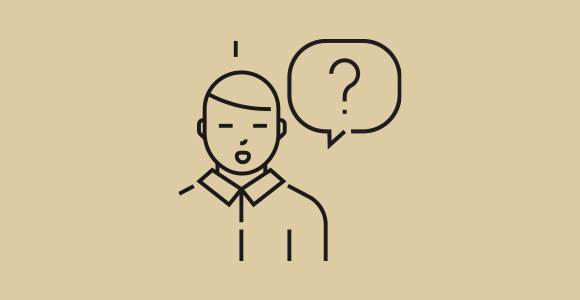About us
The Research Unit for Clinical Biomechanics (KB) is a multidisciplinary research unit that aims to improve people’s musculoskeletal health across the life course.
We do this:
- Across the health care system with a focus on primary care
- Via a commitment to research translation and implementation,
- Through influencing changes to practice and health policy,
- By impacting the knowledge, attitudes and behavior of clinicians, patients, policymakers and the public
We collaborate extensively with stakeholders in society including patients, clinicians, professional organizations, policy makers, and the public in order to secure the relevance of our research.
We are actively engaged in communication about evidence and implementation of evidence-based care in Danish society and internationally in order to positively impact public health.
KB is, together with FOF and FAS part of the Center for Muscle and Joint Health at the Department of Sports Science and Clinical Biomechanics.
The centre has more than 50 researchers dedicated to improving the health of people who experience pain and disability due to disorders and diseases of the musculoskeletal system.
Research areas
Through collaboration with national and international partners our mission is to produce high quality and relevant research related to pain and disability of the musculoskeletal system in general and the spine in particular. Through this effort our mission is to continually develop the basis for evidence-based education within the musculoskeletal field at the Faculty of Health Sciences at the University of Southern Denmark.
Our Research areas are:
- Epidemiological Research
- Basic Science and Mechanistic Research
- Clinical Research
- Methodological Research
-
Health Services Research
Research
Our research focus is on musculoskeletal health with a focus on spinal health
Spine problems are often associated with comorbidities and affect the whole health and well-being of people. Therefore, the scope of our research extends beyond the spine
A narrow biomedical view is not helpful when trying to understand persistent pain and disability. Therefore, our research aims to understand the bio- psycho-social mechanisms underpinning musculoskeletal pain and its consequences
Musculoskeletal pain and disability occur at all ages from the young to the elderly. Therefore, we are interested in investigating the life course of musculoskeletal conditions generally, and of spinal conditions in particular
If we are to positively impact the increasing burden of chronic musculoskeletal disorders, we need to determine the best ways of managing spinal pain both within and outside the clinical context.
For an overview of our Research Strategy, please click here (pdf).
Examples of research projects
GLA:D Back
GLA:D® BACK is a treatment option for patients with persistent or recurrent low back pain that affects everyday life. The program was developed by researchers and clinicians at the University of Southern Denmark (SDU).
The program follows the Danish National Board of Health’s clinical guideline recommendations for the treatment of patients with back pain and is based on principles of self-management similar to GLA:D® for patients with knee and hip pain.
GLA:D® BACK consists of:
- EDUCATION of chiropractors and physiotherapists in running GLA:D® BACK courses for patients.
- TREATMENT PROGRAM consisting of education and a structured exercise program
- REGISTRATION of patient data in the GLA:D® registry
You can read more about GLA:D® Back here, GLA:D® Denmark here and GLA:D® international here.
MiPS
The importance of early motor skills. A cohort study of Danish Preschool children with a nested RCT: The Motor skills in PreSchool (MiPS) study-DK
All preschools in the municipality of Svendborg has implemented a new program aimed at optimizing the children’s motor skills. Through an RCT design, this project will document a potential effect of the intervention.
Furthermore, a cohort has been established, including 850 children with extensive baseline- and follow-up data on gross and fine motor skills, movement patterns, musculoskeletal complaints, physical activity, anthropometry, general wellbeing, cognitive abilities, language status, medical history, parental background and more.
The children were 3-6 years of age at baseline, and the cohort is planned to run at least till the children leave school at age 15-16.
How citizens with back and neck pain use the healthcare system
The purpose of this study is to investigate how citizens referred for treatment at Spine Centre of Southern Denmark due to back and/or neck pain use the healthcare system. Among our objectives are to describe and examine the process both before and after the visit and to identify any characteristics of a "poor" care pathway. In addition, we will analyse whether there are specific groups of citizens who are more likely to have a negative experience.
The unique aspect of this project is the combination of citizen-reported data via "My Back Data", which everyone is offered to fill out when referring to the Spine Centre, combined with detailed national registry data. We have data from more than 100,000 citizens over the last 10 years.
The project is a collaboration between Clinical Biomechanics, the Danish Centre for Health Economics, SDU and the Spine Centre of Southern Denmark, and the University Hospital of Southern Denmark.
Better back
At the Medical Spine Clinic at the Regional Hospital Silkeborg, around 4,000 patients with back pain come in every year. Patients are referred after at least 8 weeks of low back pain.
The research project "Better back treatment - better life" will investigate the course of both back pain and treatment for individual patients after consultation at the spine clinic. The aim is to optimise the treatment and adapt it as well as possible to each individual patient.
The project includes consecutive patients from February 2023 to February 2024 and follows them continuously for one year. The follow-up includes data from questionnaires, interviews and registers and is conducted by researchers at Regionshospitalet Silkeborg in collaboration with the Research Unit for Clinical Biomechanics.
More details can be found at https://www.sdu.dk/da/bedreryg (in Danish)
